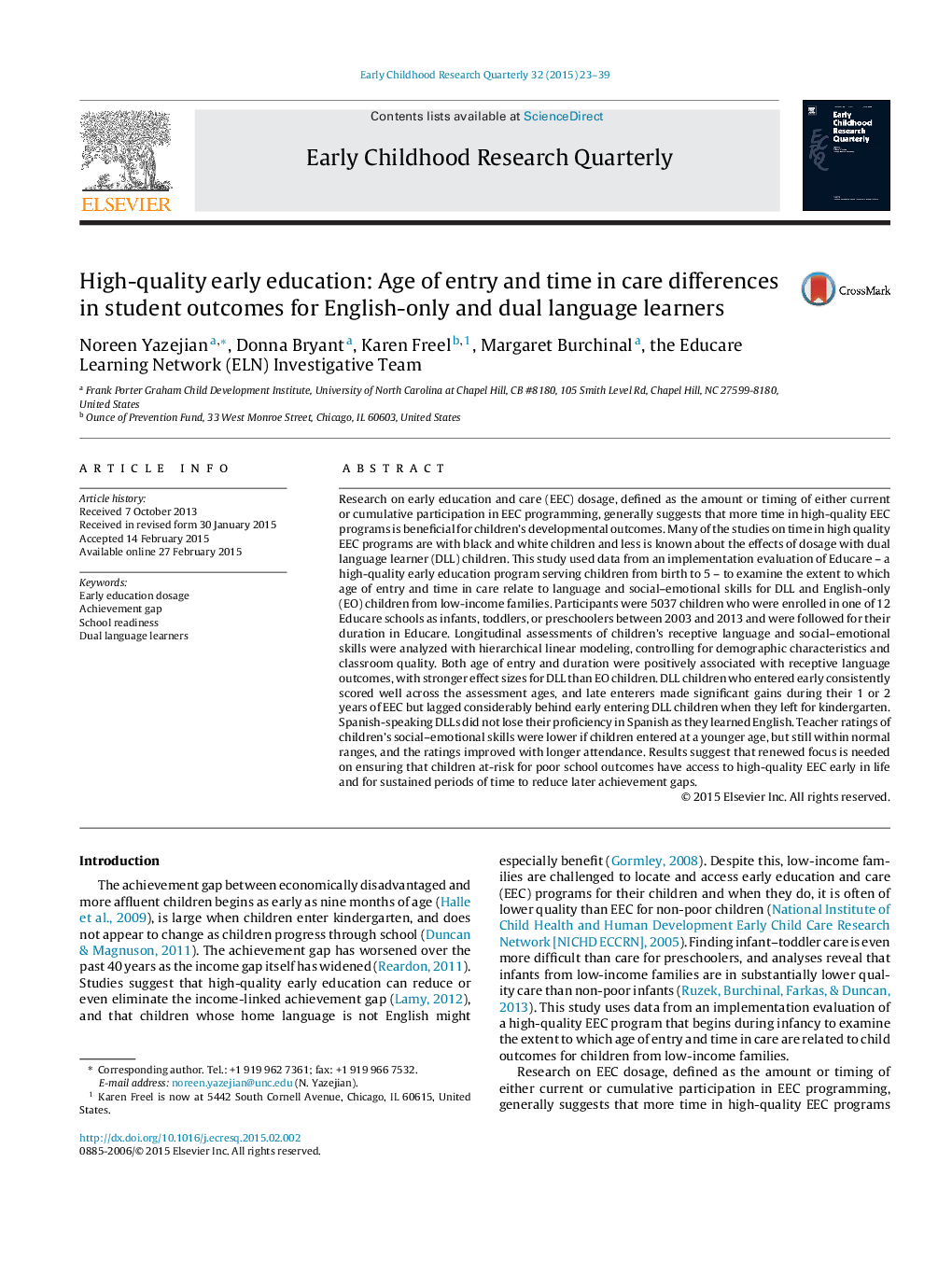| کد مقاله | کد نشریه | سال انتشار | مقاله انگلیسی | نسخه تمام متن |
|---|---|---|---|---|
| 353711 | 618939 | 2015 | 17 صفحه PDF | دانلود رایگان |
• This study examined links between high-quality early education exposure and outcomes.
• Earlier entry and more time in care were related to better receptive language skills.
• Age of entry and time in care were linked equivocally to social–behavioral skills.
• The positive links between exposure and outcomes were strongest for DLL children.
Research on early education and care (EEC) dosage, defined as the amount or timing of either current or cumulative participation in EEC programming, generally suggests that more time in high-quality EEC programs is beneficial for children's developmental outcomes. Many of the studies on time in high quality EEC programs are with black and white children and less is known about the effects of dosage with dual language learner (DLL) children. This study used data from an implementation evaluation of Educare – a high-quality early education program serving children from birth to 5 – to examine the extent to which age of entry and time in care relate to language and social–emotional skills for DLL and English-only (EO) children from low-income families. Participants were 5037 children who were enrolled in one of 12 Educare schools as infants, toddlers, or preschoolers between 2003 and 2013 and were followed for their duration in Educare. Longitudinal assessments of children's receptive language and social–emotional skills were analyzed with hierarchical linear modeling, controlling for demographic characteristics and classroom quality. Both age of entry and duration were positively associated with receptive language outcomes, with stronger effect sizes for DLL than EO children. DLL children who entered early consistently scored well across the assessment ages, and late enterers made significant gains during their 1 or 2 years of EEC but lagged considerably behind early entering DLL children when they left for kindergarten. Spanish-speaking DLLs did not lose their proficiency in Spanish as they learned English. Teacher ratings of children's social–emotional skills were lower if children entered at a younger age, but still within normal ranges, and the ratings improved with longer attendance. Results suggest that renewed focus is needed on ensuring that children at-risk for poor school outcomes have access to high-quality EEC early in life and for sustained periods of time to reduce later achievement gaps.
Journal: Early Childhood Research Quarterly - Volume 32, 3rd Quarter 2015, Pages 23–39
